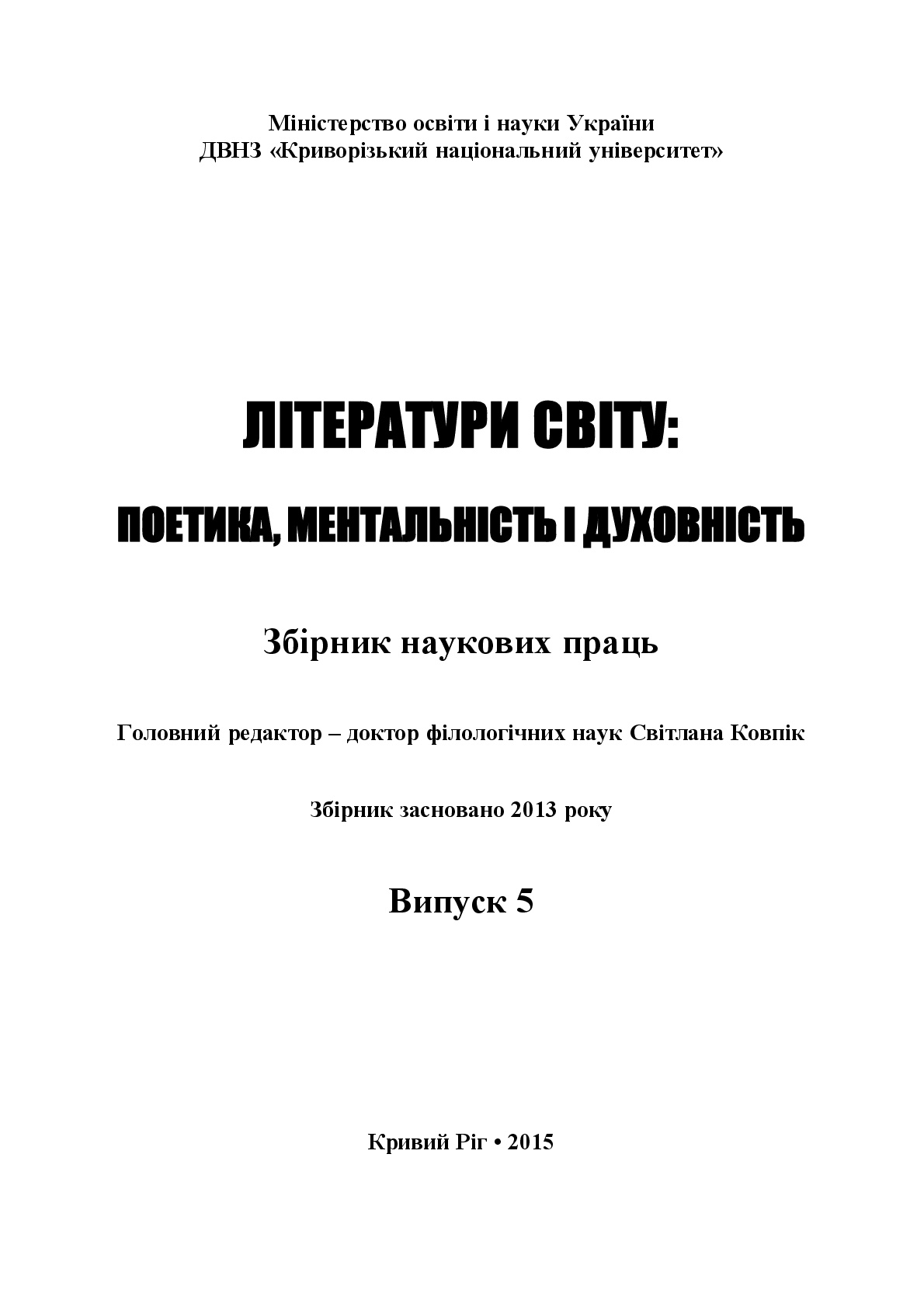Intra-image in folklore (on the material of Russian-speaking Jewish anecdotes)
DOI:
https://doi.org/10.31812/world_lit.v5i0.1250Keywords:
intraimage, stereotype, anecdote, humor, ironyAbstract
The article of I. Ya. Pavlenko «Іntraobraz in folklore (based on russian Jewish joke)» analyzes a large amount of Russian-speaking Jewish jokes and anecdotes about Jews, researches domestic and foreign literature dedicated to the ways how ethnic stereotypes are implement in folklore and postfolklore and about the nature of Jew’s ekstraobraz in the modern and the traditional folk art. By means of comparative analysis the main differentiating features of jokes about Jews and Jewish jokes in Russian-speaking postfolklore are formulated, features of the actual Jewish joke are revealed (heroes are Jews, who have a number of qualities perceived as components of the national character. The hero is an insider, albe it funny, but it is understood and accepted. The absence of severe emotional and ideological distance between the narrator and her.
The nature of storytelling and attitude of the narrator and the audience to the reproduction of text and its heroes, non-verbal components of the act of storytelling). The boundaries and sources of material for analysis (published and electronic collections of Odessa jokes) are explored. By studying Russian-speaking Jewish jokes conclusions about the traits that define the image of a representative of his people, in the material (mind, insight, a tendency to self-irony, the pursuit of education, a sense of connection between the nationality and fate, his special position in society, social insecurity, which of ten leads to pessimism and anxiety, very human-like, «family» attitude to God, concern for the future of children, selfless children’s love to their parents (especially to mom), volubility and the ability to answer a question with a question) were made.






